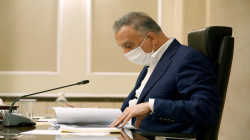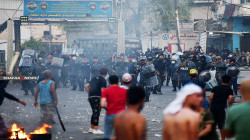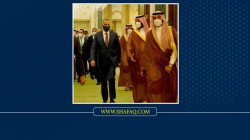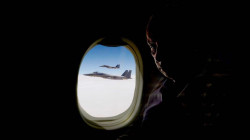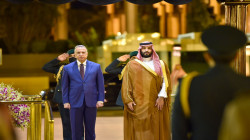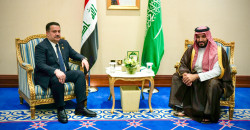Cool down or heat up? al-Kadhimi, Bin Salman, and Biden's pursuit to reshape the Middle East
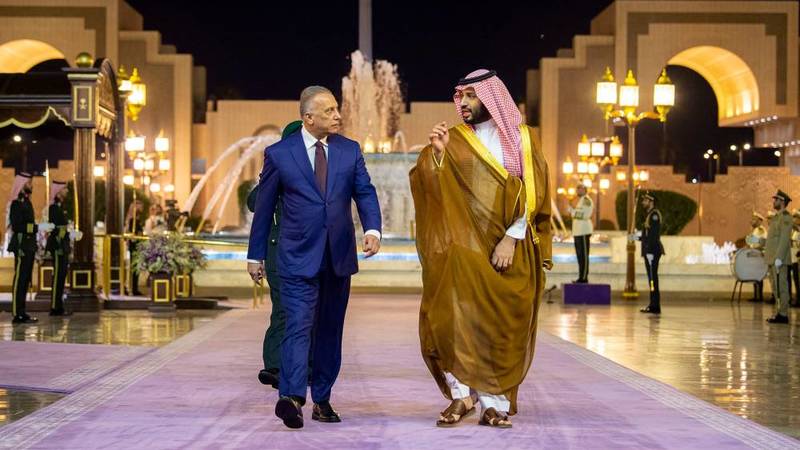
Shafaq News / It is unclear whether the recent rocket attacks on power plants in the Kurdistan region were warning shots ahead of the Iraqi Prime Minister Mustafa al-Kadhimi's regional tour between Jeddah and Tehran. Nonetheless, it is, indeed, a serious apprehension of a volatile summer that awaits not only Iraq but the Middle East as a whole.
Some optimists tend to depict the recent developments as the final maneuvers that will decide the positions that will characterize the political set up after the end of the round.
Meanwhile, developments surrounding Iraq are culminating and a new regional phase is being marked not only by al-Kadhimi's brief visit to Saudi Arabia and Iran, but also the Russian Foreign Minister Sergei Lavrov's visit to Tehran, amid Russian concern over the Ukraine war and the near-global conflict in Eastern European.
In the same context comes Saudi Crown Prince Mohammed bin Salman's tour to Turkey, Jordan, and Egypt ahead of his meeting with al-Kadhimi on Saturday in Jeddah.
Observers attribute this Saudi move to U.S. President Joe Biden's upcoming visit to Saudi Arabia for a regional summit that is expected to include the leaders of the U.S.A., K.S.A., Kuwait, Bahrain, Qatar, Oman, the U.A.E., Egypt, Jordan, and Iraq.
According to public and leaked statements on al-Kadhimi's meetings in Jeddah and Tehran, the hoped-for breakthrough in the Saudi-Iranian ties was central to his talks with both Prince Mohammed bin Salman and Iranian President Ibrahim Raisi. The godfather of the unborn reconciliation between the two regional archfoes seems keen on completing the quest even during his last hours in the office.
Apart from the truce in Yemen, no real political breakthrough has been materialized between Iran and Saudi Arabia. This, according to observers, implies that the recent cool-down is "temporary" and, consequently, vulnerable to any new regional constrain in which the Saudis and Iranians are at odds.
Observers also point out that the Yemeni truce, while appearing to be one of the fruits of Baghdad's Saudi-Iranian rapprochement since last year, is also a necessary move that the Saudi side had to make. Otherwise, the U.S. president would have been shamed in Jeddah amid heavy criticism in the U.S. of the Yemeni war and Prince bin Salman since accusations surfaced against him, including from the C.I.A., of involvement in the assassination of Saudi journalist Jamal Khashoggi in 2018, with whom senior U.S. officials have avoided meeting (at least publicly) since then.
Therefore, for all the reasons above, it was imperative to "set the scene" to make a proper reception for Biden via the declaration of a truce in Yemen. Furthermore, the Turkish judiciary announced a halt to the case of the assassination of Khashoggi inside the Saudi consulate in Istanbul since the case was deemed a prerogative of the Saudi judiciary.
According to observers, the Turkish move initiative paved the way for Mohammed bin Salman's visit to Turkey. It definitely facilitated the establishment of a new phase of Turkish-Saudi cooperation, in light of regional shifts dictated by the Ukraine war. Apparent changes in the relatively declining U.S. presence in the Middle East as Washington is preoccupied with Russian and Chinese "dangers."
The notion of a "regional NATO", which had been extensively promoted ahead of Biden's arrival through the Israeli gate, was not a material of public discussion at any of al-Kadhimi and bin Salman's tours. Similarly, Iran and its "threat" were a minor substrate for the recent interactions of both leaders. In fact, apart from a singled-out superficial reference toward Iran's nuclear program and foreign policy during the Jordan visit, the Saudi de facto governor, unusually, did not mention Iran in any of his recent commutations.
As a result, al- Kadhimi's brief visit, which included his umrah (visit to the Kaaba in Saudi Arabia), reflects a clear Iraqi awareness of the apparent détente between Saudi Arabia and the Iranian Republic.
This is undoubtedly wishful thinking on the part of Iraqis, who are quite conscious of the consequences of any regional tension, whether Saudi-Iranian or otherwise, on the Iraqi scene. But, at the same time, the ambiguity of the regional leaders' position on the "regional NATO" proposal raises concerns that they might yield to Biden's pressure in the anticipated meeting; especially since the latter is in dire need of a political victory with the mid-term election around the corner.
Observers, therefore, fear that Biden will be more urgent and strict in putting forward his ideas, betting on Mohammed Bin Salman's need, for example, to secure his "mandate of the Saudi throne", Israel's need to seize the favorable regional and international moment to strengthen the threads of its regional ties, to strengthen its security presence (at least in the context of confronting Iran), and to try to entice other regional countries to normalization agreements.
He might also bet on Iraq's need not only to complete the arduous reconciliation mission between Riyadh and Tehran, but also on the Iraqis' need to ensure their security and economic stability, regardless of the Iraqi government that rules today or tomorrow.
So far, there has been no official Iraqi position on Biden's tour, but it became clear that Iraq's priorities are ensuring that Saudi Arabia and Iran take a break to avoid the tension that might exacerbate if a "regional NATO" becomes a material of formal discussions amid trembling nuclear talks.
At this critical moment, al-Kadhimi has tough questions to answer about regional NATO. Will Iraq join? What part does Iraq play in case it joins? Is the political and security environment in Iraq today conducive to making such a change? Will it spur new security alignments inside Iraq?
But for the people of Iraq and the Middle East, it has always been one question: will it cool down or heat up?
